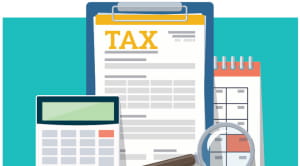
Planning for your retirement in your 40s, 50s and beyond will help ensure that you are saving enough into your pension pot to live comfortably once you retire. Learn how much you need to save, and how to build your retirement savings with our expert guide
The start of a new decade in age is often a time when we consider our future – particularly our retirement, when we might be able to stop drawing an income from employment if we have enough money, and what we might do with that time.
Turning 40 for me was my lightbulb moment. I knew I'd been saving money into work pension schemes but had no idea how much I’d saved and what that would mean in terms of income when I could access it. I'd heard friends talking about their DB (defined benefit – where you're guaranteed income based on your salary and the number of years you've worked for your employer) and DC (defined contribution – where you and your employer both pay into a fund that can be drawn down in retirement) pots. It was time to get comfortable with my pension savings and focus on what I needed to save to ensure that I wouldn't have to work forever.
Life events often trigger these thoughts about retirement finances as well. Children may be leaving home for university or to create their own lives; or perhaps the death of a relative brings your own mortality into focus. Whatever it takes, it's important to understand how much you have and how much you'll need.
The current economic environment also impacts these later-life decisions: the current cost-of-living crisis, higher interest rates at 5.25%, and high inflation at 4% (at the time of writing, mid-January 2024) may also mean that budgets are tighter and less money can be saved for the future.
How much retirement income do you need?
Retirement income figures were recently published by the Pensions and Lifetime Savings Association (PLSA), which calculated amounts based on a minimum, moderate and comfortable lifestyle. For example, to live a moderate lifestyle you would need an annual income of £23,300 or £448 per week. The state pension (currently £10,600 per year) would cover some of this, but the remainder would need to be covered by the pension pot that's been built up during your working career. The moderate lifestyle example of £23,300 per year would require a fund or pot size of £248,000.
What do these numbers mean? I recently took part in an experiment to live for a week on the minimum and moderate budget amounts. The minimum budget was £246 per week, which, after my bills were paid, left me £120 to pay for food and daily spending. Very little was left for socialising, emergency spending, one-off spending and holidays. It simply wasn’t enough to live on.
The moderate income of £448 was more comfortable and gave me a lot more space for one-off costs, eating out and socialising. Consider which income would be enough for you to live on, and then compare your actual pension size to what you might need.
How much pension will I get?
To calculate where you are currently, you can request a current pension valuation from your employer, which will explain how much you have and what that'll be worth upon reaching retirement age. You may have various pension pots from several different employers – if you have several DC pots, it might be simpler to combine these into one place.
If you need help understanding your current and future pension situation, and you're over 50, you can access the government's free Pension Wise service. Or you might feel more comfortable getting advice from a financial advisor – Boundless members can get access to discounted financial services.
There are useful retirement fund calculators, such as the one on the PensionBee website. These are great for understanding what a DC pension size will be worth and what impact further contributions will make to your future income, assessed at different ages.
When to start saving for retirement
Carefully consider how much money you'll need to retire – and live the lifestyle you dream of – as this will help you plan how to set aside money at different ages.
The decade of our 40s is the time when we earn the most money, according to recent government research of average earnings by age and region. We earn an average of £770 per week in our 40s, compared with £727 in our 50s and £651 in our 60s. With us being at our richest in our 40s, it’s a great idea to maximise employee pension contributions to benefit from tax savings and potentially higher employee contributions.
If you ever have any spare cash, it's also worth considering mortgage overpayments. There's a great app called Sprive that automates these overpayments, and the savings on interest charges and reducing your mortgage term can be huge. For example, if I overpaid my mortgage by £100 a month, I would save £5,200 in interest and reduce the term of my mortgage by 2 years (based on owing £300k over 23 years).
As you draw closer to pension age, you might consider putting more money into your pension to benefit from the tax savings and being able to access the money quicker. Tax is instead paid when you make pension withdrawals – apart from the 25% tax-free lump.
How to save for retirement – different savings strategies
A pension isn’t the only way to save for your future, and it’s a good idea to invest your money across different types of financial products to spread your risk. When you save into a pension, the money is locked away until pension age, so you might want to consider other savings strategies where money is more accessible. A stocks and shares ISA is a great medium-term savings strategy where you invest in funds and the stock market – a maximum of £20k per year can be saved into this product.
Another savings strategy is to save into premium bonds – up to £50k can be saved, and the prize fund rate is 4.65% (4.4% from March 2024), with two prizes of £1m being awarded every month.
If you have larger sums of money and are unsure where to get the best returns, then do take advice from a financial advisor.
Do more with Boundless
Boundless members get free entry to top attractions, discounts on restaurants and savings on high-street brands, plus dozens of other deals on holidays, experiences and more! If you're working or retired from the public sector or civil service, and you're not yet a member, discover more about Boundless membership here.





